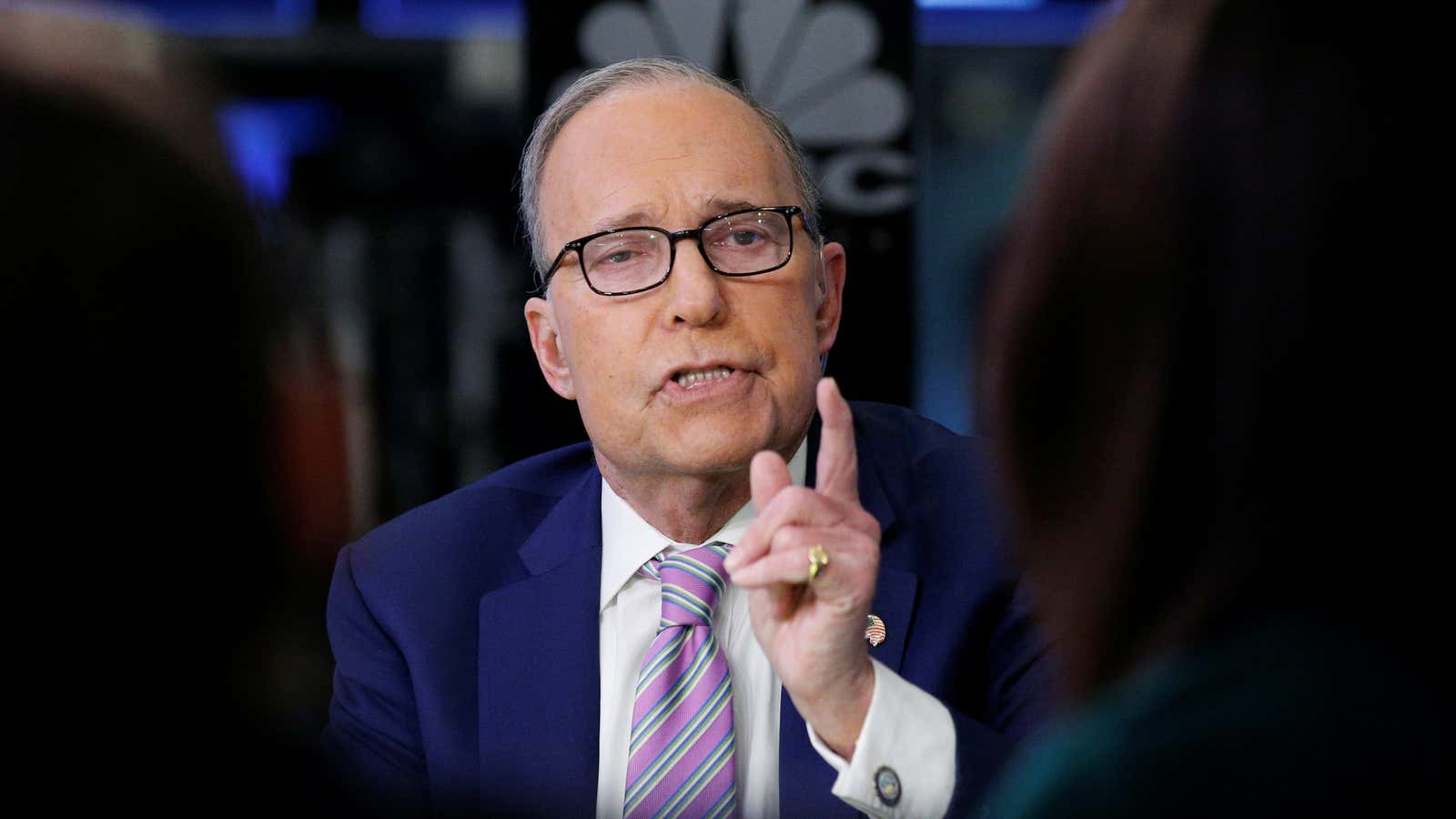Larry Kudlow has a history of making poor calls when the economy looks to be hot. In late 2007, a time the National Bureau of Economic Research would later decide was the start of the recession, the cable-TV pundit argued that the “Bush Boom” was alive and well.
Those who voiced concerns about an impending housing crisis? “Pessimistas” and “bubbleheads.”
Today (March 14), the White House announced that Donald Trump has named Kudlow his top economic advisor.
He will be taking on the role at a time of big tax breaks, strong economic growth, healthy inflation, growing wages, and rising interest rates. The economy, much as it appeared to be like in the years before the recession, is doing well. And it’s precisely in good times when it’s worth scrutinizing the insights of a former Wall Street economist whose philosophy comes down to unquestionable optimism about the American economy, markets, and currency.
From the Fed to the TV
Kudlow’s bad calls, though, haven’t always weighed down his career. He began as an economist at the Federal Reserve, a place that did not require a PhD. He later worked as Bear Sterns’s chief economist in the late 1980s. He resigned from the job to enter rehab for alcohol and cocaine.
Still, his time in policy and on Wall Street allowed Kudlow—who was not formally educated as economist—to play the part of one on TV.
By adding Kudlow, Trump could be looking in the mirror. He gets a white, male television-savvy supporter in his 70s who agrees with him on everything from low taxes for the wealthy to the need to seal America’s borders. Yet Kudlow represents, at least in this White House, some form of diversity. Kudlow decried Trump’s “America First” policies before the election, arguing tariffs, even as a pure negotiation tactic, would still hurt the economy. He’s called Trump’s proposed steel and aluminum tariffs “prosperity killers, ” all while beseeching the president to understand that “tariffs are really tax hikes.”
“He’s a traditional strong free trader, and provides the same voice as [Gary] Cohn did,” says Simon Lester, a Cato Institute trade analyst, speaking of the former Goldman Sachs exec who was Kudlow’s predecessor at the White House.
“We don’t agree on everything. In this case I think it’s good. I want a diversity of opinion,” Trump told reporters on March 13th about Kudlow, before noting that Kudlow was one of his earliest campaign supporters.
He seems to know what he is getting into
Kudlow also knows Trump well, Lester says, and seems like he’d get along with Trump much better than Cohn may have, even through disagreements. Kudlow “will be good in this position and play the role well,” he predicts.
Many people think that the steel and aluminum tariffs Trump announced, built around national security concerns, were a bad idea. Cohn was unable to convince Trump of alternatives. Kudlow may prove more productive and less controversial for the White House. “Maybe it comes down to personality,” Lester said.
Whether the National Economic Council advisors who were hand-picked by Cohn will remain under Kudlow is unclear. They were widely expected to quit if Peter Navarro, Trump’s hardline protectionist advisor, got the job.
This article has been corrected to remove misinformation about the cost of Kudlow’s drug habit, which Quartz had sourced from and attributed to another publication.
